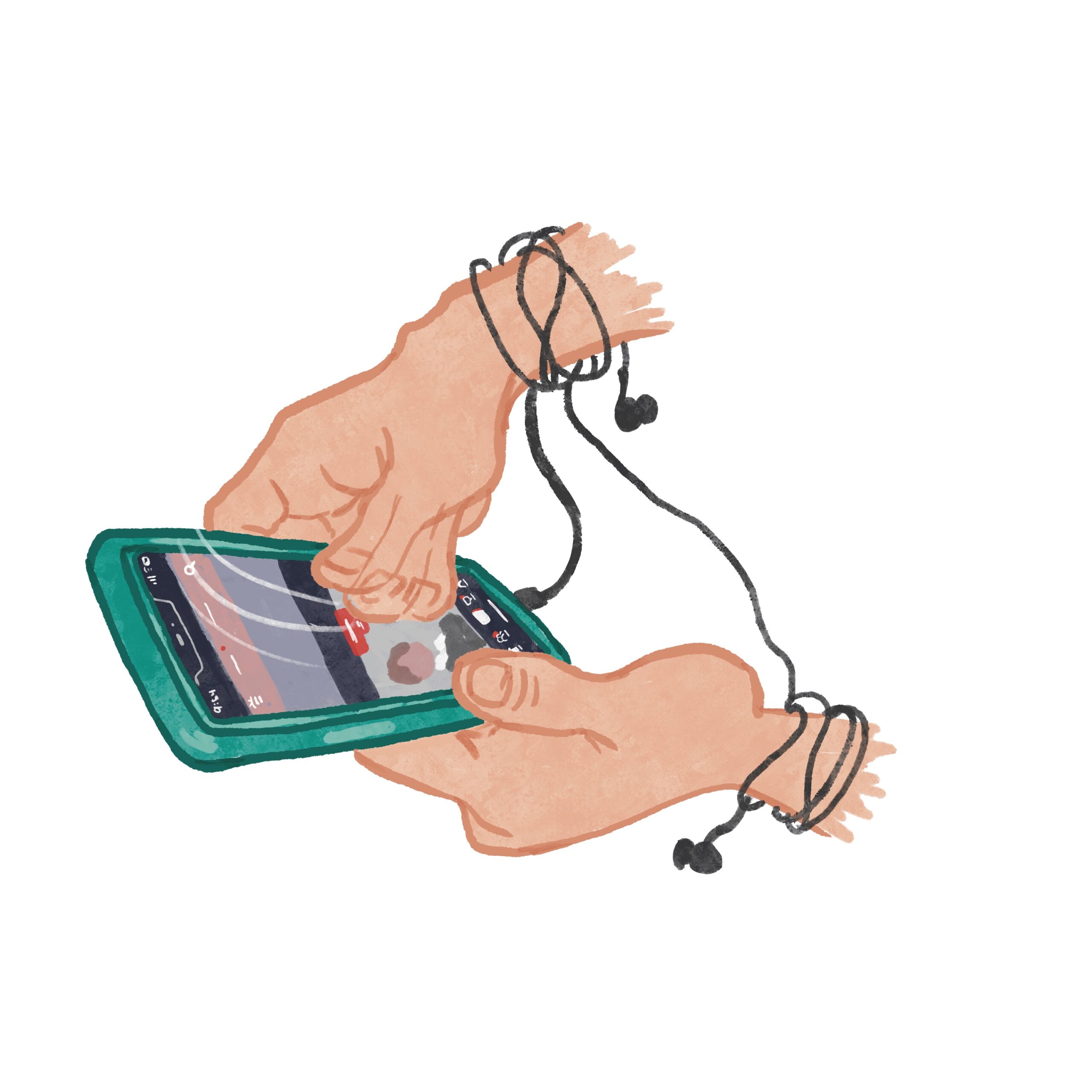Forum
The TikTok algorithm: Addiction and confirmation bias

I was scrolling through TikTok last night, and I liked a video of a senator quoting Taylor Swift at the Ticketmaster hearing. This morning, of the first ten videos on my “For You” page, six of them depicted U.S. senators quoting Taylor Swift. While in this case TikTok’s echo chamber appears harmless and even frivolous, when applied to politics and contemporary issues, it can be detrimental.
TikTok was recently awarded the title of Most Downloaded App of 2021, garnering 656 million downloads — significantly more than Instagram, Facebook, Snapchat, or Twitter. Like YouTube, TikTok differentiates itself by honing in on social media as entertainment rather than a way to connect with others. The many negative side effects of social media use (exacerbation of imposter syndrome and depression, among others) have long been countered by arguments for social media as a force of societal progress, one that can connect billions of people from all different countries, religions, and socioeconomic statuses. Because TikTok focuses on entertainment rather than connecting people, that benefit of social media is essentially gone, which sets the app up as a target of debate, controversy, and scandal.
According to The New York Times, the algorithm for recommending videos to users is most affected by time spent per video, and everything else stems from there. After time spent per video, TikTok may consider other factors, such as user interactions (likes, comments, playthrough, and playtime) and creator quality (publish rate and creator monetization).
Each video consumed gives TikTok a new insight into the user, which is why it so often seems like the app may know us better than we know ourselves, as one user found when she realized that TikTok may have known her sexuality better than she did.
This algorithm produces what is essentially an echo chamber, repeating its users’ beliefs and opinions over and over again, solidifying their preexisting ideas and exemplifying confirmation bias. This forges a wider and wider gap socially and politically, promoting the polarization that is already so prominent in today’s politics.
Like anything else that releases high levels of dopamine into the brain, TikTok is highly addictive. According to media expert Celeste Headley, TikTok is “designed to be addictive.” This led students around the world to boycott the app during exam season. According to a study performed by Troy Smith of the University of Trinidad and Tobago, 31.8 percent of TikTok users are at some kind of risk for TikTok addiction. He found that even semi-addicted users can view TikTok as a form of escapism and exhibit the same symptoms of addiction as alcoholics and drug addicts: anxiety, nervousness, and irritability, as well as symptoms of withdrawal when deprived of the app.
So what can we do about it? The only solution to the confirmation bias issue produced by the TikTok algorithm is curiosity. The way the algorithm operates, the “For You” page will introduce new subject matter every once in a while in an attempt to learn even more about the user. By taking advantage of these opportunities to leave our rabbit holes and explore new topics (watching videos on subjects of our curiosity from start to finish), we can teach TikTok that the common thread between our interests is that they are new topics for us to explore and learn from.
As for TikTok addiction, there is no panacea. Digital Responsibility, a Silicon Valley tech media group focused on sharing the “consequences of technology,” recommends tracking time spent on the app, unfollowing users that do not “provide real value to your life,” setting a time limit, and finding alternative forms of entertainment that are better for your overall well-being.
I have since limited myself to only scrolling through TikTok for the hour before I fall asleep. I’ve unfollowed some less-than-educational users (goodbye @alixearle; it was fun), and I try to spend more time not just off TikTok, but off my phone as a whole. I’ve realized that, really, nothing that I invest time in online “provides real value” to my life, and the things that do provide that value exist in-person, in real time.
